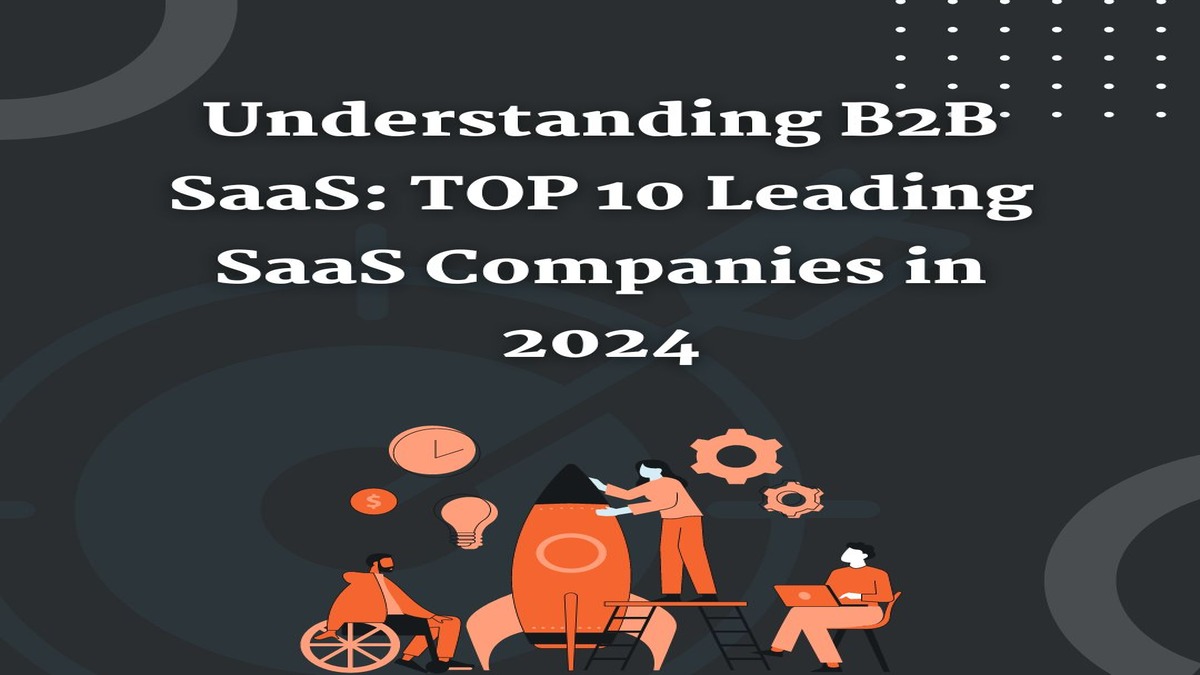What is B2B SaaS?
B2B SaaS, or Business-to-Business Software as a Service, is cloud-based software designed for businesses to use over the internet. Instead of buying and installing software on their own systems, companies subscribe to use it. This model offers easy access, regular updates, and scalability, helping businesses run more efficiently. It saves costs and minimizes the requirement for extensive IT infrastructure. Examples include tools for CRM, HR, marketing, and more.
Key Features of B2B SaaS:
- Cloud-Based: The software is hosted online, which means businesses can access it from anywhere with an internet connection.
- Subscription Model: Instead of purchasing the software outright, businesses typically pay a subscription fee, which can be monthly or annual.
- Scalability: B2B SaaS solutions can easily scale to accommodate growing business needs.
- Regular Updates: The provider regularly updates the software, ensuring users always have access to the latest features and security enhancements.
- Cost-Effective: Eliminates the need for businesses to invest in expensive hardware and IT infrastructure.
Benefits of B2B SaaS:
- Accessibility: Accessible from any location with internet access, supporting remote work.
- Regular Updates: Automatic updates ensure you always have the latest features and security patches.
- Integration: Often integrates with other business tools, enhancing overall efficiency.
- Maintenance-Free: The provider handles maintenance and support, freeing up your internal resources.
- Quick Deployment: Faster to implement compared to traditional software, speeding up time-to-value.
Use Cases
B2B SaaS helps businesses manage customer relationships, streamline HR processes, and automate marketing tasks. It enhances team collaboration, simplifies financial management, and supports e-commerce operations. These tools are essential for improving efficiency and productivity in various business areas.
Top 10 B2B SaaS Companies in 2024
Here we provide some B2B SaaS companies lists.
1. Salesforce
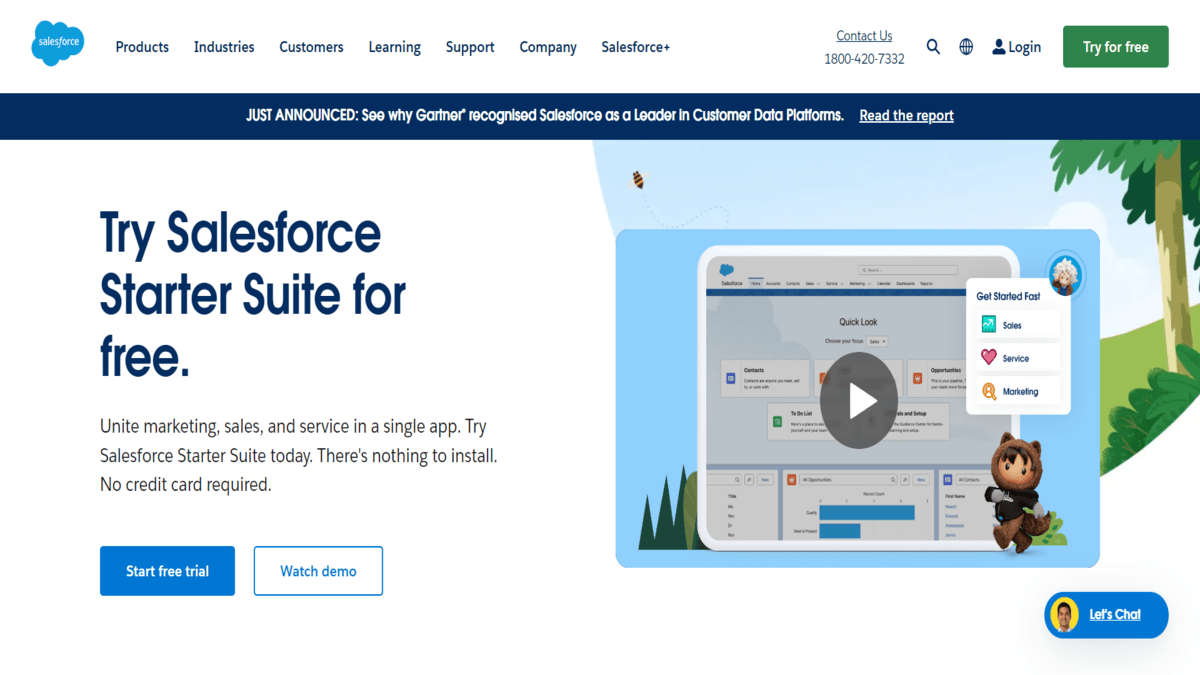
Salesforce is one of the pioneers in the B2B SaaS space. Their cloud-based CRM platform helps businesses manage customer relationships, track sales, and automate marketing tasks. Salesforce’s platform is highly customizable, allowing businesses to tailor it to their specific needs.
Pricing Details:
Salesforce: See Salesforce Pricing Details
2. Ahrefs
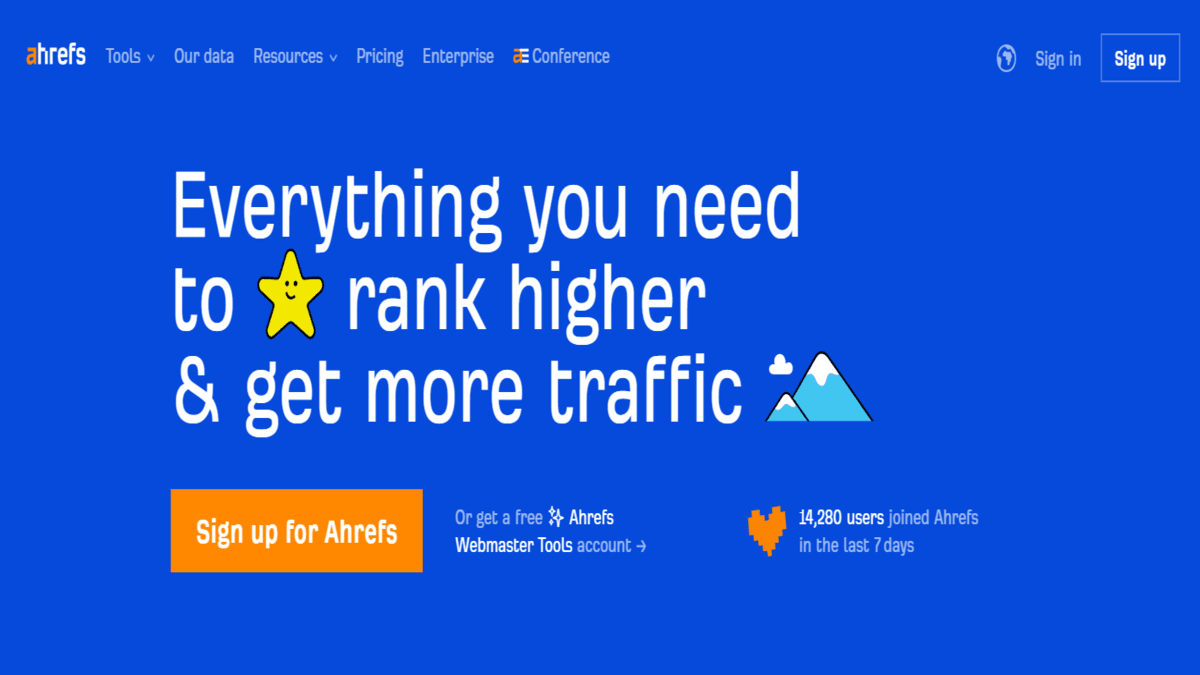
Ahrefs is a comprehensive SEO (Search Engine Optimization) toolset that helps users analyze and improve their website’s search performance. It offers features like backlink analysis, keyword research, competitor analysis, and rank tracking. Ahrefs’ tools provide valuable insights into SEO strategies, helping businesses and marketers optimize their online presence effectively. It is widely used for its robust data and user-friendly interface, making it a popular choice among SEO professionals and digital marketers worldwide.
Pricing Details:
Ahrefs: See Ahrefs Pricing Details
3. Slack
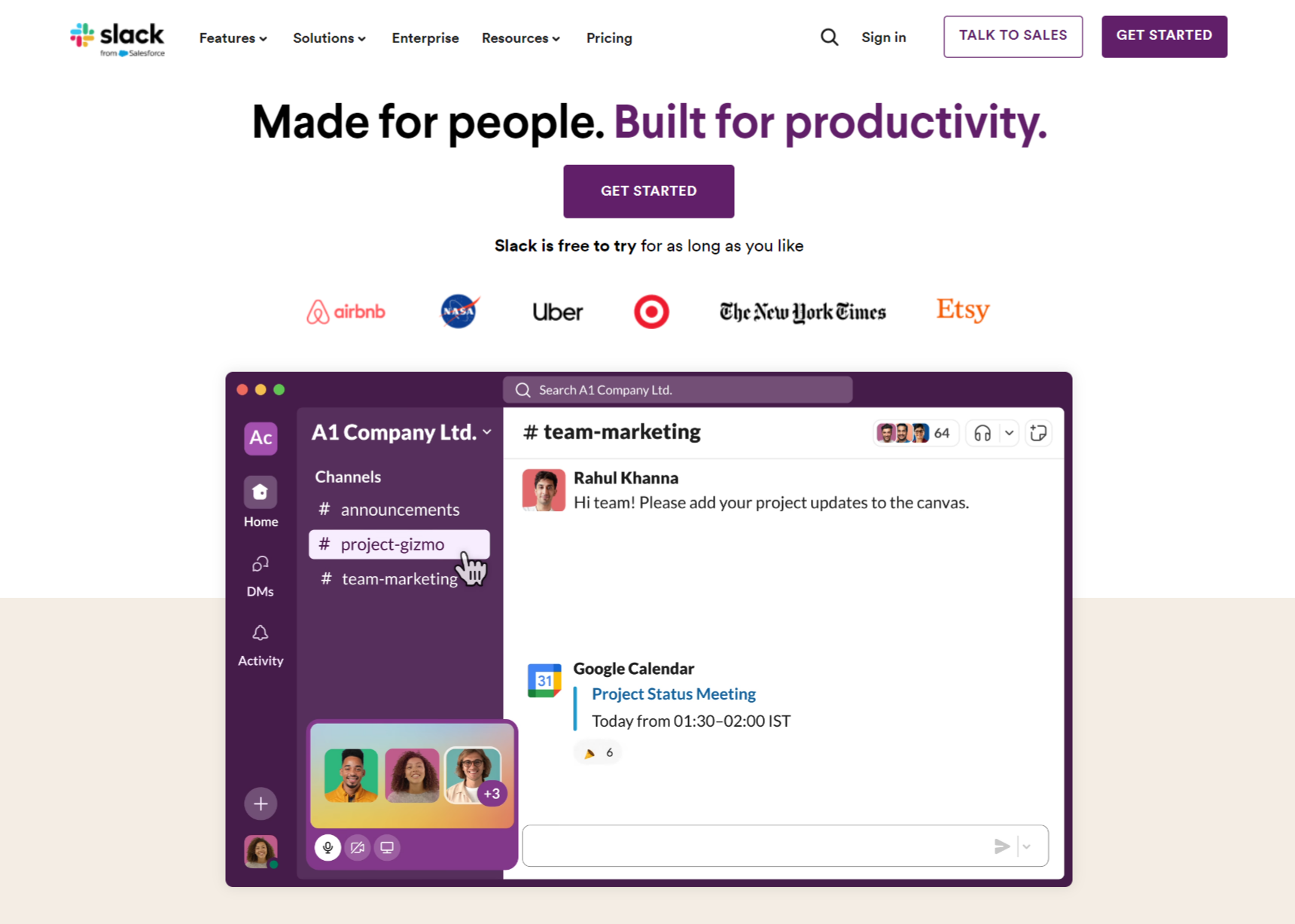
Slack is a communication platform aimed at enhancing team collaboration efficiency. It offers real-time messaging, file sharing, and integration with other business tools, making it easier for teams to stay connected and productive.
Pricing Details:
Slack: See Slack Pricing Details
4. SurveyMonkey
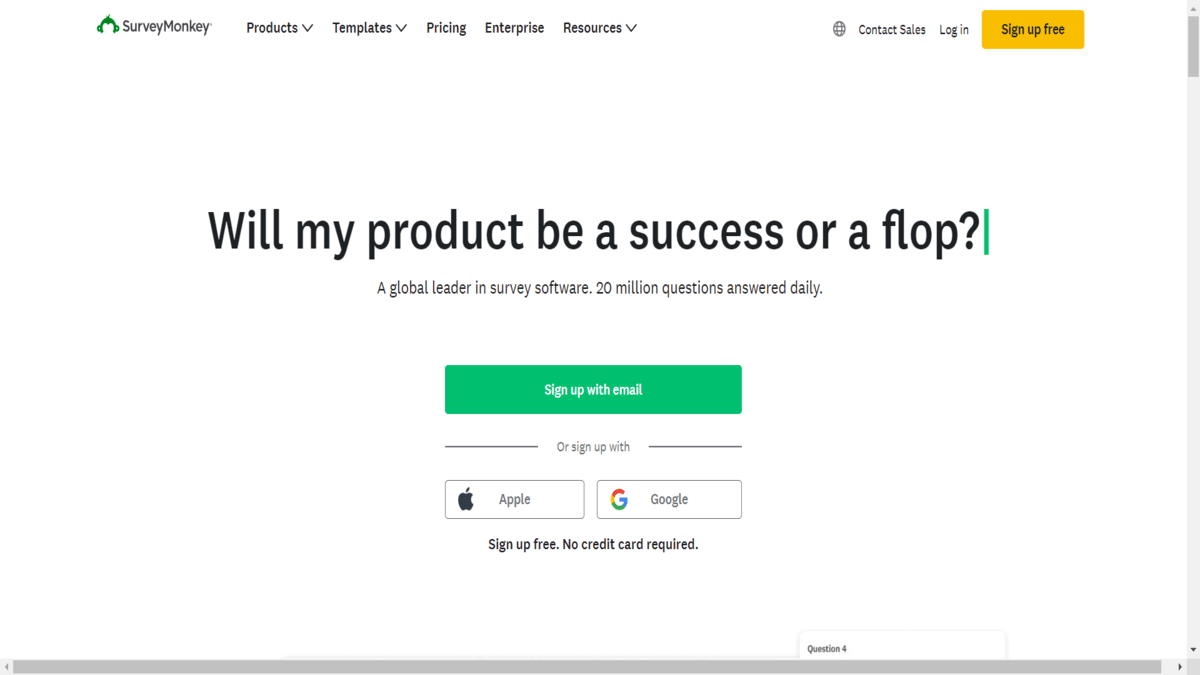
SurveyMonkey is an online survey development platform that allows users to create, distribute, and analyze surveys. It offers customizable templates and question types for diverse survey needs. The platform provides data analysis tools and reporting features for insightful feedback.SurveyMonkey integrates with multiple apps and services to streamline data collection. It is widely used for market research, customer feedback, and employee engagement surveys.
Pricing Details:
SurveyMonkey: See SurveyMonkey Pricing Details
5. ClickUp
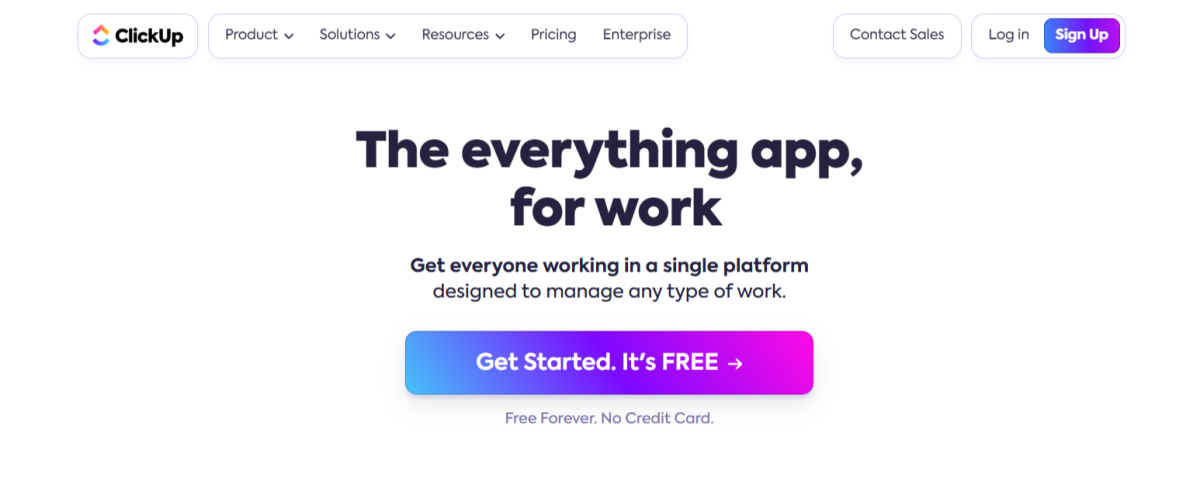
ClickUp is a comprehensive productivity platform designed for task and project management. It offers customizable features for tasks, documents, goals, and time tracking. The platform supports collaboration with tools for communication and file sharing. ClickUp integrates with various other tools and apps for seamless workflow management. It is used by teams of all sizes to streamline their work processes and boost productivity.
Pricing Details:
ClickUp: See ClickUp Pricing Details
6. Shopify
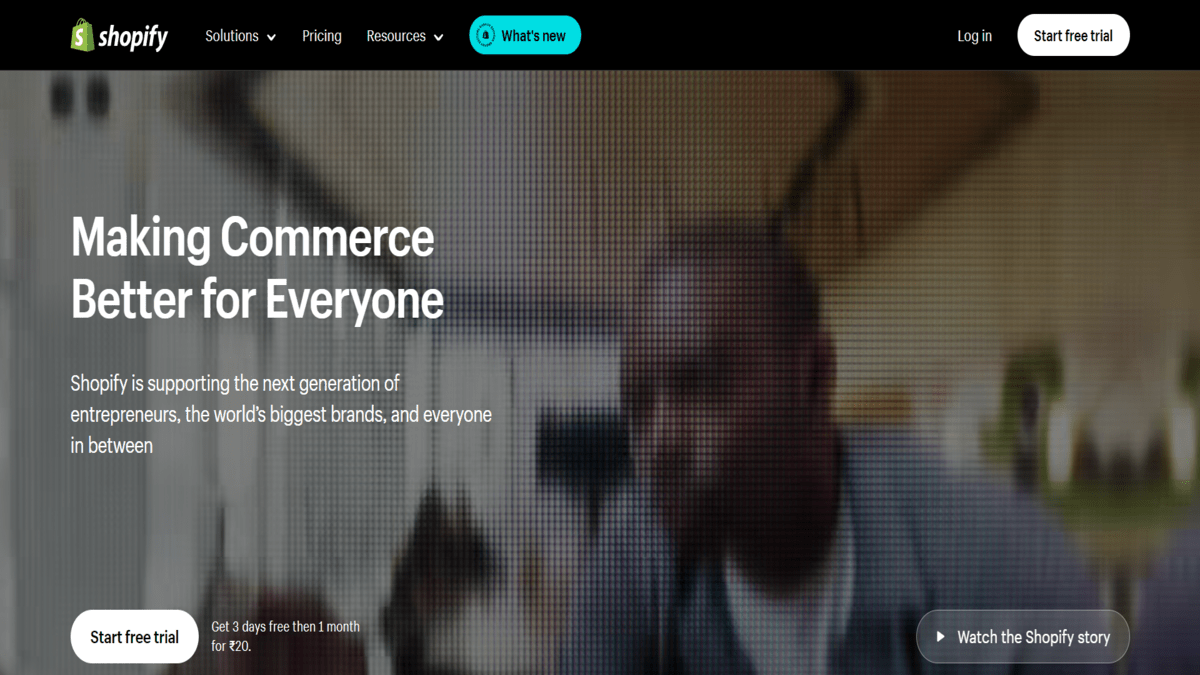
Shopify is an e-commerce platform that allows businesses to set up, operate, and manage online stores. It provides tools for everything from website creation and product listing to payment processing and order fulfillment.
Pricing Details:
Shopify: See Shopify Pricing Details
7. Typeform

Typeform is a web-based platform for creating interactive and engaging forms, surveys, and quizzes. It offers customizable templates and a user-friendly interface for easy design. Typeform’s conversational approach enhances user experience and response rates. It integrates with various apps and services for seamless data management. The platform is widely used for feedback collection, lead generation, and market research.
Pricing Details:
Typeform: See Typeform Pricing Details
8. Attentive
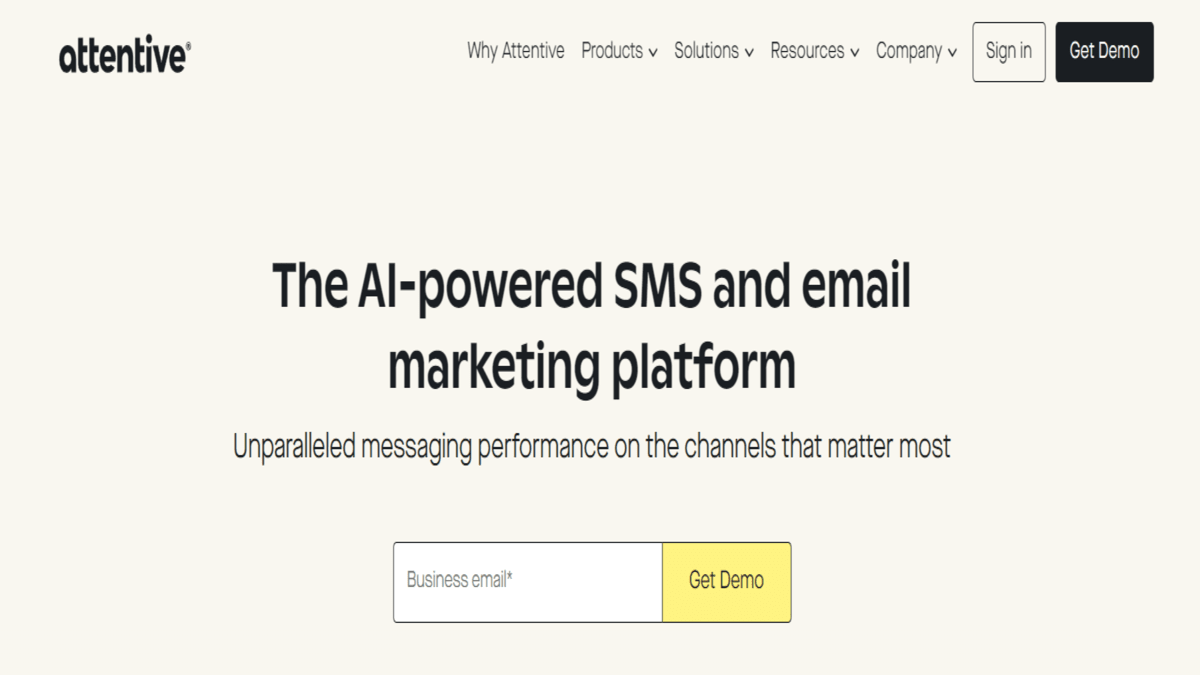
Attentive is a marketing platform specializing in text message marketing for businesses. It helps companies engage with customers through personalized SMS campaigns. The platform features tools for segmentation, automation, and performance tracking. It is designed to drive customer engagement and sales through mobile messaging. Attentive integrates with various e-commerce and marketing systems for seamless operations.
Pricing Details:
Attentive: Custom Pricing
9. Dropbox Business
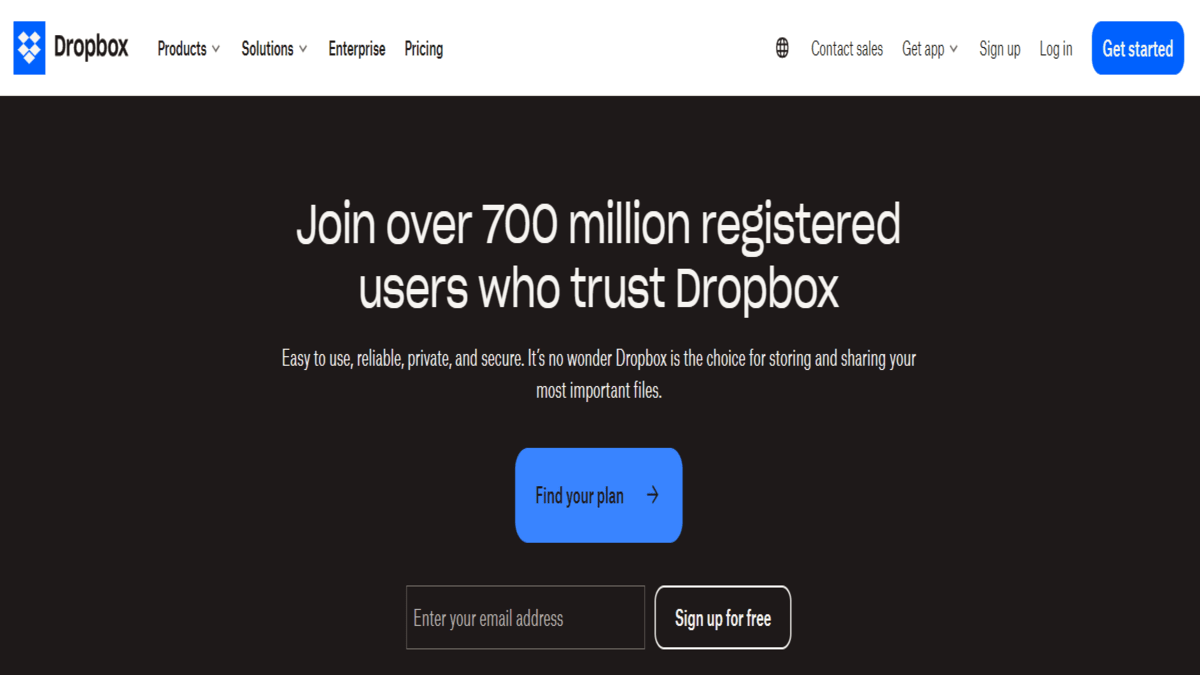
Dropbox Business provides cloud storage and file-sharing solutions for businesses. It allows teams to store, sync, and collaborate on documents securely. Dropbox integrates with many other tools, enhancing its functionality and usability.
Pricing Details:
Dropbox: See Dropbox Pricing Details
10.Descript

Descript is a platform that offers user-friendly audio and video editing capabilities. It offers automatic transcription, allowing edits by manipulating text.Users can generate synthetic voiceovers using the Overdub feature. It supports multitrack editing for podcasts and videos. Descript also provides collaborative tools for team projects.
Pricing Details:
Descript: https://www.descript.com/pricing?utm_source=saaszeal&utm_medium=referral
Development of B2B SaaS:
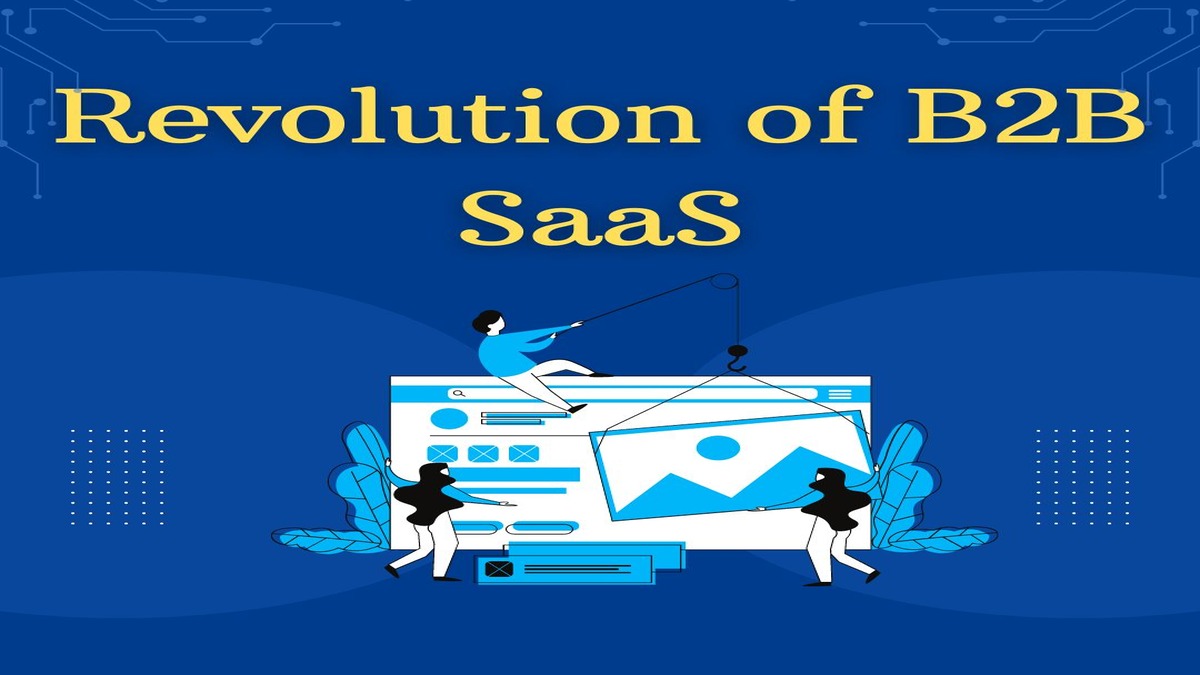
The evolution of B2B SaaS has been marked by significant changes in how businesses operate and utilize software solutions. Initially, B2B SaaS focused on offering fundamental functionalities such as CRM and project management. Over time, advancements in cloud technology, data analytics, and user experience have transformed B2B SaaS into a pivotal tool for business success.
Early Stage: Basic Functionalities
Initially, B2B SaaS offered basic tools like CRM, project management, and simple accounting software to automate tasks and improve business operations, though these tools were limited in customization.
Expansion into Specialized Solutions
As businesses looked for more specific solutions, B2B SaaS started offering industry-specific software for tasks like digital marketing, logistics, HR, and financial planning. These tools helped businesses streamline operations and stand out in competitive markets.
Integration and Scalability
With increased adoption of SaaS solutions by businesses, integration became essential. B2B SaaS providers enhanced their APIs and connections to ensure seamless data flow, boosting efficiency. Scalability became key, allowing businesses to adjust software usage as they grew or evolved.
Emphasis on Data Analytics and AI
Data analytics and AI have transformed B2B SaaS. Advanced analytics offer insights into customer behavior and market trends, while AI automates tasks, predicts outcomes, and enhances user experiences, making B2B SaaS smarter and more valuable for businesses.
Shift towards Customer Success
Lately, B2B SaaS companies have placed greater emphasis on customer success. They now prioritize proactive customer support, user training, and continuous improvement based on feedback. This ensures businesses get the most from their SaaS investments and builds lasting partnerships.
Latest Trends in B2B SaaS
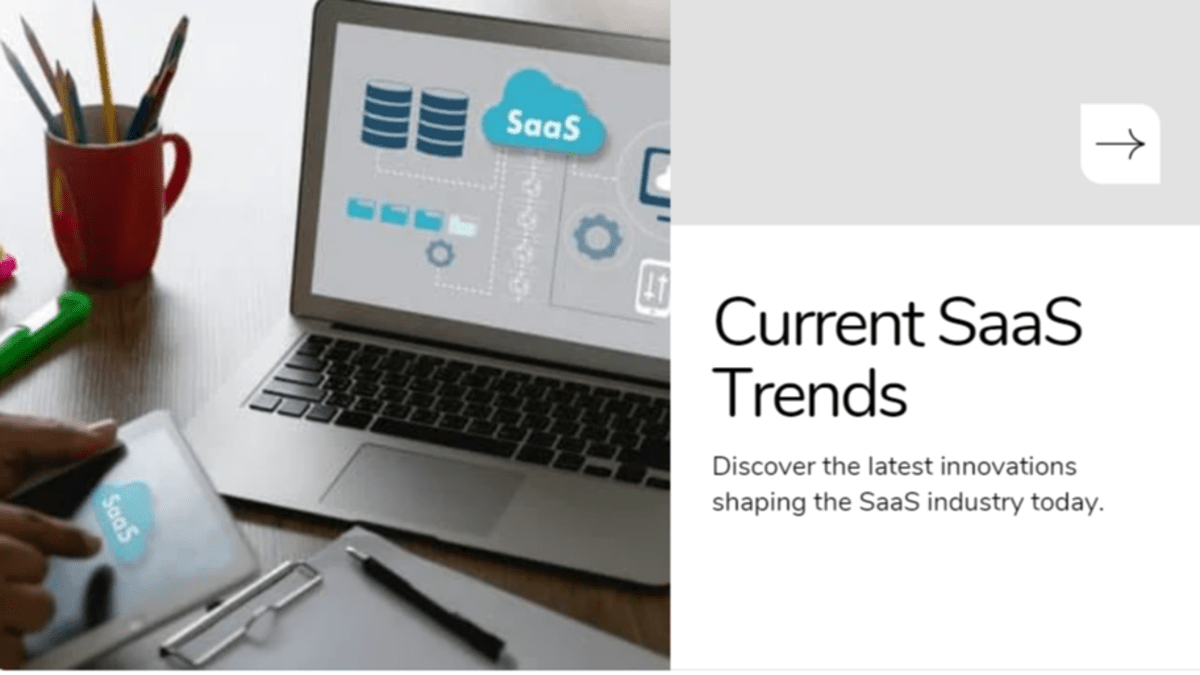
These trends illustrate how B2B SaaS is evolving to meet the changing demands of modern businesses, offering advanced capabilities that enhance efficiency, innovation, and customer satisfaction.
- Specialization: B2B SaaS is moving towards more specialized solutions tailored to specific industries or business functions, such as healthcare, logistics, or financial services.
- Integration: B2B SaaS platforms are increasingly focusing on strong integration capabilities to connect seamlessly with other software systems, improving data flow and operational efficiency.
- AI and Automation: AI in B2B SaaS automates tasks, predicts outcomes, and offers advanced analytics for better decision-making.
- Customer Success Focus: SaaS companies prioritize customer success through proactive support, training, and feedback-driven improvements for maximum satisfaction.
- Scalability and Flexibility: B2B SaaS solutions are designed to be scalable, allowing businesses to adjust usage and functionality as their needs evolve, providing flexibility in service delivery.
- Security and Compliance: B2B SaaS providers are improving security and compliance to protect data and meet regulations.
- Subscription Models and Pricing: Flexible subscription models and pricing strategies in B2B SaaS cater to diverse customer needs and enable cost-effective software scaling.
- Remote Work Enablement: Remote work has boosted demand for B2B SaaS, focusing on collaboration, communication, and productivity across distributed teams with cloud and mobile support.
Future Trends of B2B SaaS
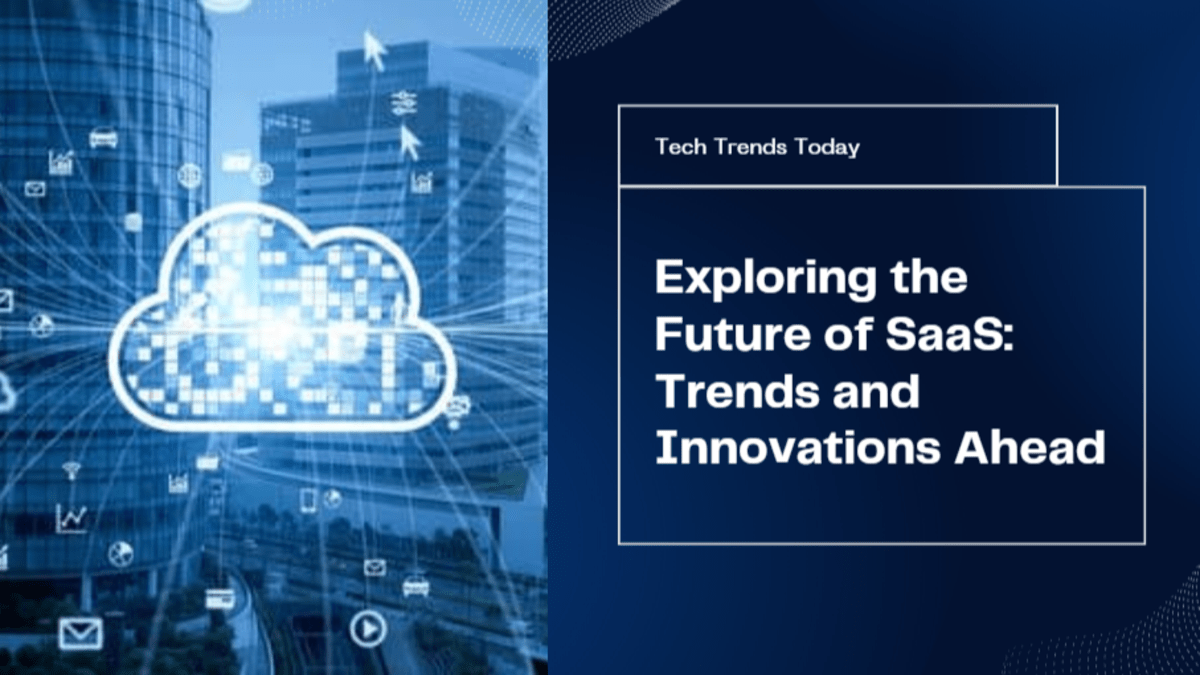
These trends indicate a dynamic future for B2B SaaS, characterized by technological innovation, industry-specific solutions, and a strong emphasis on security, user experience, and business agility.
- AI and Automation: Increased integration of artificial intelligence (AI) to automate tasks, enhance predictive analytics, and personalize user experiences.
- Industry-Specific Solutions: Continued development of specialized software tailored to specific industries’ unique needs, such as healthcare, finance, and logistics.
- Enhanced Integration: Further improvements in integration capabilities to facilitate seamless data flow between different SaaS platforms and other enterprise systems.
- Data Security and Compliance: Ongoing focus on strengthening security measures and compliance capabilities to address evolving data regulations and cybersecurity threats.
- Subscription Flexibility: More flexible subscription models and pricing strategies to accommodate varying customer needs and enhance scalability.
- Remote Work Enablement: Continued emphasis on features that support remote work, including robust collaboration tools, mobile accessibility, and virtual team management.
- Customer-Centric Innovation: Greater emphasis on customer success strategies, including proactive support, user training, and continuous feedback-driven improvements.
- IoT Integration: Exploring opportunities to integrate Internet of Things (IoT) technologies to improve data collection, analysis, and operational efficiency.
Conclusion
B2B SaaS solutions have transformed business operations by boosting productivity, streamlining processes, and cutting costs. The examples of leading B2B SaaS companies highlight the wide range of solutions available for different industries. As technology advances, B2B SaaS will become even more vital for businesses. In short, B2B SaaS uses cloud software to drive success, whether it’s managing customer relationships, improving team collaboration, or simplifying financial tasks. There’s a B2B SaaS solution for every need.
FAQs
1. What is B2B SaaS?
Ans. B2B SaaS stands for Business-to-Business Software as a Service. It refers to cloud-based software solutions sold on a subscription basis to other businesses to improve operations and efficiency.
2. How does B2B SaaS differ from B2C SaaS?
Ans. B2B SaaS targets businesses as customers, offering solutions for business operations, while B2C SaaS targets individual consumers, providing personal or entertainment-focused applications.
3. What are some benefits of using B2B SaaS?
Ans. Benefits include cost savings, scalability, easy updates, remote accessibility, and the ability to integrate with other business systems.
4. Why are integrations important in B2B SaaS?
Ans.Integrations enable seamless data flow between different software systems, improving efficiency, reducing manual work, and providing a more unified workflow.
5. What role does AI play in B2B SaaS?
Ans.AI automates repetitive tasks, provides predictive analytics, enhances customer personalization, and helps businesses make data-driven decisions.
6. How does B2B SaaS support remote work?
Ans. B2B SaaS offers cloud-based tools that facilitate collaboration, communication, and productivity, making it easier for distributed teams to work together effectively.
7. What are some top B2B SaaS companies in 2024?
Ans.Examples include Salesforce, HubSpot, Slack, Zoom, Microsoft Dynamics 365, Shopify Plus, Oracle NetSuite, ServiceNow, Workday, and Zendesk.
8. How do B2B SaaS companies ensure data security?
Ans. They implement robust security measures such as encryption, regular security updates, compliance with regulations, and advanced threat detection to protect sensitive data.
Read More: 10 Best SaaS Tools for Business in 2024

